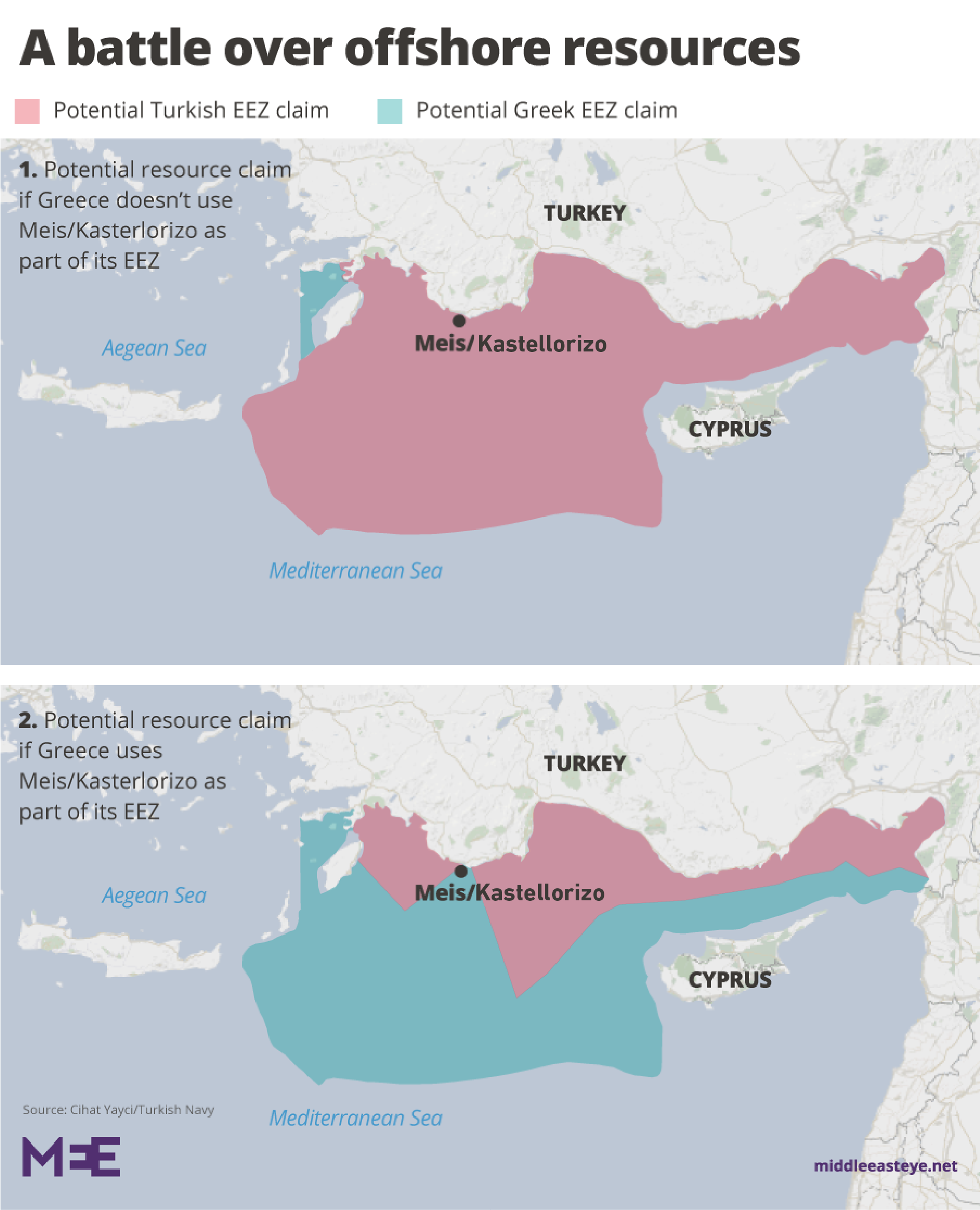Turkey-Greece dispute: Acrimony as Ankara sends ships to disputed waters

Turkey on Monday responded to a maritime deal between Greece and Egypt by deploying a seismic research vessel and warships to the designated naval border area, reiterating its claims to exclusive rights in the region.
Ankara's navy and Energy Minister Fatih Donmez said that the Oruc Reis vessel had left the Turkish coastal town of Antalya for a new research area, which lies in seas claimed by Athens and Cairo.
In a navigational telex, known as navtex, the navy also said that it would conduct a military drill near the Greek-claimed territorial waters.
The announcement came after President Recep Tayyip Erdogan said on Friday that Ankara would restart its drilling operations in the Mediterranean, as Greece had violated a German-mediated diplomatic dialogue by suddenly signing a deal to thwart a similar maritime agreement signed by Turkey and Libya last year.
'Greece will defend its sovereignty and sovereign rights. We call on Turkey to immediately end its illegal actions that undermine peace and security in the region'
- Greek foreign ministry
Greek media said Athens had declared an emergency and that military command had already convened to evaluate the situation. A subsequent national security council meeting on how to respond ended with a message by the Greek Chief of General Staff Konstantinos Floros, who reportedly said "everything will be good".
Stay informed with MEE's newsletters
Sign up to get the latest alerts, insights and analysis, starting with Turkey Unpacked
Athens also issued a counter-navtex, saying that the Antalya's navtex station did not have the authority to issue the telexes in the area to the south of the island of Kastellorizo, which is part of the "Greek continental shelf". The Greek navy declared that it would conduct a military drill near Crete.
Greek media claimed that the Oruc Reis had already started laying cable for seismic research for energy resources.
The Greek foreign ministry in a statement said Athens would not accept any blackmail.
"Greece will defend its sovereignty and sovereign rights. We call on Turkey to immediately end its illegal actions that undermine peace and security in the region," it said.
Turkish officials accuse the Greek government of not honouring its promise to discuss the issue on a bilateral level, even though, in a goodwill gesture, Ankara suspended its drilling work west of Cyprus for a month in order to allow time for diplomatic negotiations.
“After the consultations, Greek and Turkish foreign ministers were in agreement to issue a joint declaration. However, a day before the release of the joint text, Greece announced that it had signed a deal with Egypt,” Erdogan’s chief foreign policy adviser, Ibrahim Kalin, said on Sunday night.
“This is another attempt to exclude Turkey from the eastern Mediterranean and condemn us to the Antalya Gulf. We can never accept that,” he said.
The main point of disagreement between the two governments stems from the islands belonging to Greece in the Aegean Sea and Mediterranean. While Turkey says Greece has a right to declare an exclusive economic zone in the region, it insists Athens should take into consideration Turkish interests.
For example, Athens treats the Greek island of Kastellorizo as a mainland area, and is therefore seeking maritime rights. However, the island is just 2km from Turkey’s Antalya, while the Greek mainland is more than 500km away.
Turkish Foreign Minister Mevlut Cavusoglu, in a interview published by the Daily Sabah newspaper, said that EU foreign policy chief Josep Borrell had been astonished by the Greek move as the German government tried to work out a deal.
Greece's Foreign Minister Nikos Dendias told Greek media last week that he wasn’t expecting to sign a deal in Cairo and didn’t have the time to inform the German government.
A Turkish official, speaking on condition of anonymity, told Middle East Eye that Ankara's next steps were partly shaped by the Greek response.
“The ball in their court. They can either prefer to defuse the tensions or else,” the official said.
Middle East Eye delivers independent and unrivalled coverage and analysis of the Middle East, North Africa and beyond. To learn more about republishing this content and the associated fees, please fill out this form. More about MEE can be found here.





